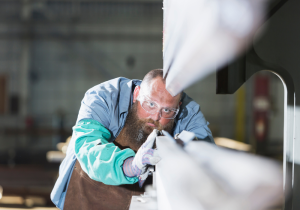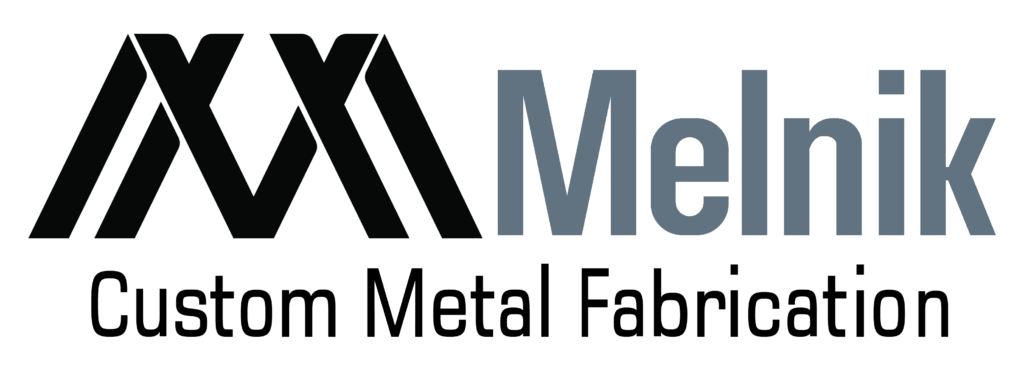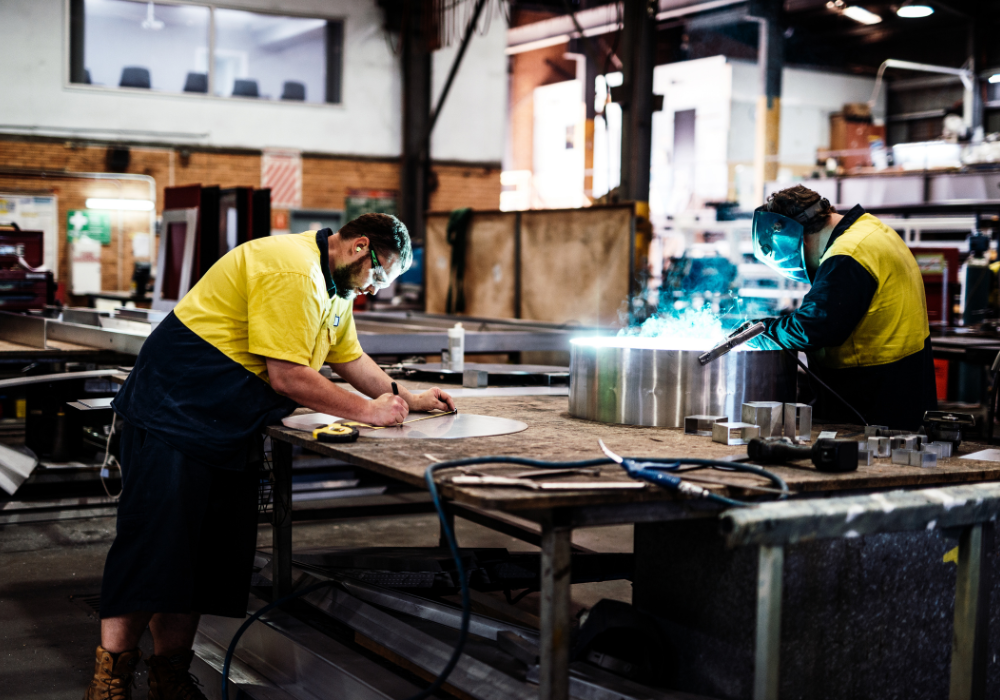In today’s competitive industrial landscape, achieving operational efficiency is crucial for success. One of the most effective ways to enhance efficiency is through custom metal fabrication. This process not only offers tailored solutions to meet specific needs but also brings about significant improvements in productivity and cost savings. For industrial engineers and metal fabricators, understanding the potential of custom metal fabrication can unlock new levels of performance and innovation in industrial applications.
The Process of Custom Metal Fabrication
Custom metal fabrication involves designing and creating metal products tailored to specific requirements. Unlike standard solutions, which might not fit perfectly into unique applications, custom fabrication ensures precision and specificity. Here’s a breakdown of the key steps and technologies involved in the custom metal fabrication process:
 Design
Design
The journey begins with a detailed design phase where engineers and designers collaborate to create blueprints and specifications. CAD (Computer-Aided Design) software plays a crucial role in this stage, allowing for precise modelling and simulation of the final product.
Material Selection
Choosing the right material is critical. Factors such as strength, durability, weight, and cost are considered to ensure the material aligns with the application’s requirements. Common materials used include stainless steel, aluminum, and carbon steel.
Cutting and Shaping
Advanced technologies like CNC (Computer Numerical Control) machines and laser cutters are employed to achieve high precision during the cutting and shaping stages. These technologies reduce waste and ensure consistency in production.
Welding and Assembly
Once the individual components are cut and shaped, they are welded and assembled. Skilled welders and automated welding systems ensure strong and reliable joints, which are essential for the structural integrity of the fabricated product.
Finishing
The final step involves finishing processes such as grinding, polishing, and coating. These not only enhance the appearance but also provide additional protection against corrosion and wear.
Benefits of Custom Metal Fabrication Over Standard Solutions
Custom metal fabrication offers several advantages over off-the-shelf solutions:
Precision and Fit
Custom solutions are designed to meet exact specifications, ensuring a perfect fit and reducing the need for modifications.
Quality Control
With custom fabrication, quality control is maintained throughout the production process, resulting in higher-quality final products.
Material Optimization
By selecting the appropriate materials and using advanced cutting techniques, custom fabrication minimizes waste and optimizes material usage.
Innovative Designs
Custom fabrication allows for innovative designs that can meet unique application requirements, providing a competitive edge.
 Factors to Consider When Selecting a Custom Metal Fabricator
Factors to Consider When Selecting a Custom Metal Fabricator
Choosing the right fabricator is essential for successful custom metal fabrication projects. Here are some key factors to consider:
Experience and Expertise
Look for fabricators with a proven track record and expertise in your specific industry.
Technology and Equipment
Ensure the fabricator uses advanced technology and equipment to guarantee precision and quality.
Customer Service
Excellent customer service is crucial for smooth project management and communication. Choose a fabricator who values your input and provides regular updates.
Certifications and Standards
Check for certifications and adherence to industry standards, which indicate a commitment to quality and safety.
Initiating a Custom Metal Fabrication Project
Starting a custom metal fabrication project involves several steps:
Initial Consultation
Begin with an initial consultation to discuss your requirements and expectations. This is the stage where you share your vision and get feedback from the fabricator.
Design and Prototyping
Based on the initial consultation, the fabricator will develop designs and prototypes. This phase may involve several iterations to refine the design.
Project Management
Once the design is finalized, the project moves into the production phase. Effective project management ensures that timelines are met and any issues are promptly addressed.
Production and Quality Control
During production, quality control measures are implemented to ensure that the final product meets all specifications and standards.
Delivery and Installation
The completed product is delivered and installed, with the fabricator providing support to ensure everything functions as intended.
Custom metal fabrication holds immense potential to transform industrial operations by boosting efficiency, reducing costs, and driving innovation. By choosing custom solutions over standard ones, industrial engineers and fabricators can create products that are precisely tailored to meet specific needs, leading to significant improvements in performance and productivity.
Ready to explore the transformative potential of custom metal fabrication for your industrial applications? Contact us today to discuss your project and take the first step towards enhanced efficiency and innovation.

